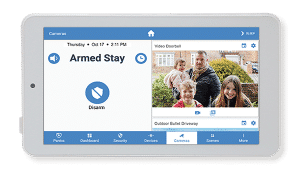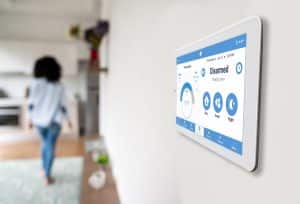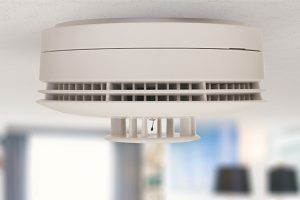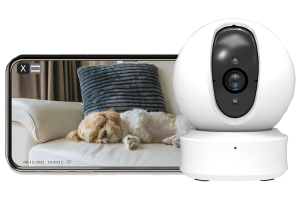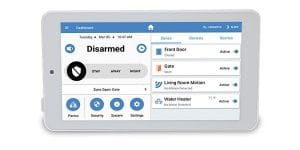Your cart is currently empty!
Month: December 2022
-

What to know if you bought a home with a security system
If you bought a home with a security system, it may be possible to reprogramme it and save money by replacing outdated technology with modern equipment like motion sensors and add equipment that you can be monitored.
You might have already done this when moving into the property; however, if not then it’s worth doing so now. Reprogramming involves making sure that all of your sensors are working and linked up correctly on your network as well as making sure any new additions (such as additional motion detectors) are connected to the network too.
Update the system – modernize. A modern system is likely to have a variety of components that work together to protect your home. You’ll probably have motion sensors, which detect movement in specific areas; cameras, which can be used for surveillance or monitored by an operator; a smartphone app that allows you to arm and disarm the system remotely; and even video doorbells (sometimes called “door viewers”) that let you see who’s at the door from anywhere in the world on your phone or computer.
These components can be added to the existing equipment saving money from purchasing an entire new system.
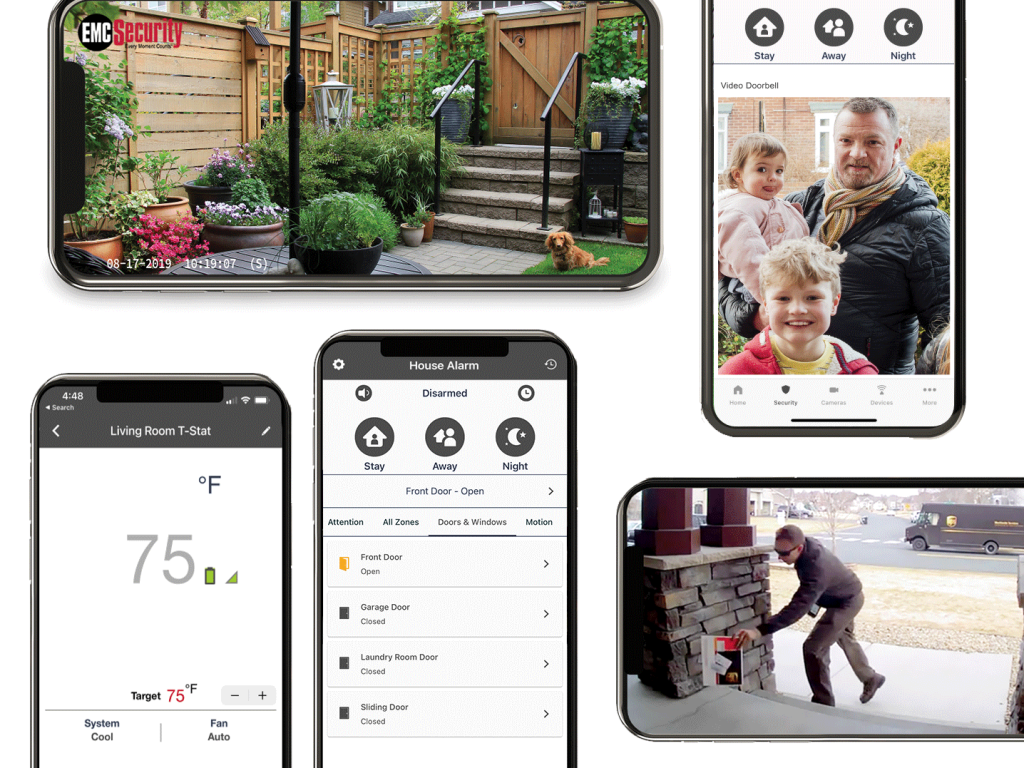
In many cases, you will be able to use the entry and motion sensors from the original system. If they need replaced though, they are relatively inexpensive. You may also want to update your security system’s hardware to make it more efficient. For example, if the keypad is old and unable to handle newer features, consider replacing it with a new one that does have those capabilities.
Monitoring is the process of having a security company remotely monitor your alarm. If there is an intrusion, they will alert you and/or law enforcement. You can also control the system yourself from your phone, tablet or computer through the app that comes with the system. I highly recommend this option as it is convenient and inexpensive; however, if you do not have a cell phone or internet access but still want monitoring services they do offer landline options as well.
Contact EMC Security for information about affordably using the system components already installed in your home at 770-963-0305.
-

How to reduce homeowners insurance premium
Homeowners insurance isn’t something you buy every day, and therefore it’s easy to forget about in the midst of other financial priorities.
But if you’re interested in reducing your homeowners insurance premium, here are some tips for getting started:
1. Improve your home security.
The best way to lower your homeowners insurance premium is to improve the security of your home, which can be done in several ways:
Install a security system. The most effective way to secure your home and reduce the risk of break-ins is by installing an alarm system that will notify you if someone enters or tries to enter your property without permission. A great deal of modern alarm systems are wireless, so they can be installed quickly and easily without needing an electrician or other professional help.
Fire alarms and smoke detectors. If you have a fire alarm and/or smoke detector in your home, make sure that it’s working properly and recharge the batteries every six months to two years. Also, be sure that everyone in the house knows how to use the system—and test it regularly!
Better still, install EMC Security monitored smoke detectors – montored 24/7. You might even see higher dicsounts on homeowneers insurance. To discuss your options, call 770-963-0305.
Fire extinguishers. You should also have a fire extinguisher—but don’t just pick one up at Home Depot (unless you want an industrial-sized tank). Instead, speak with an expert about what type of extinguisher is right for your needs: whether you want something easy to carry around or something more powerful; whether it’s necessary to buy two different types of extinguishers; how much maintenance they require on average (and know how often this will come up); etc.
2. Shop around.
The first thing you should do when shopping for homeowners insurance is to get quotes from multiple companies. Don’t assume that the first company you call will give you the best quote, and don’t assume that the insurer with the lowest quote is a good choice for your needs.
3. Bundle up your policies with the same insurer.
If you’re considering bundling your policies with the same insurer, you should know that insurance companies charge more for bundled policies than they do for single-policy coverage. However, this can still provide a great benefit to consumers who want to save money on their homeowners insurance premiums by bundling multiple insurance policies together.
Bundling can be an especially good option if you have other types of insurance (such as car or health) with the same company as well. By maintaining all your policies with one insurer, you may qualify for additional discounts and savings on other coverages.
Additionally, because both parties enjoy lower administrative costs when dealing with only one policyholder at a time, this could also help them offer lower rates overall – which will save you both money in the long run! If nothing else convinces you to bundle up your various types of coverage into one contract (or at least keep them all under one roof), then consider this last bit of advice: Often times it’s easier to bundle when there are multiple people listed on an application; therefore if everyone who lives within a household were listed under one account holder’s name instead of being spread out amongst different individuals’ names then chances are better that applicants’ credit scores would improve over time due to consistent usage history across different accounts.”
4. Increase your deductibles.
A deductible is the amount of money you’ll pay for an insurance claim before your insurance company pays anything. For example, if your car is damaged in a collision and needs $2,000 worth of repair work, with a $500 deductible then you would pay $500 before the insurance company covers any additional costs.
You can get discounts on premiums by increasing your deductibles to lower levels. If you decide to increase them beyond what’s normally recommended by insurers and state law, keep in mind that doing so will mean more out-of-pocket expenses should something happen to your home or car. But if this is something you’re willing to accept as part of lowering your homeowner’s insurance premium costs (and we wouldn’t blame you), then go right ahead!
If you’re looking for ways to save money on your homeowners insurance premium, there are a lot of options out there. We hope this article has helped you find some that are right for your situation and budget!
-

How do most burglars break into a home?
Burglars are clever, opportunistic criminals who make a living off of breaking into homes and businesses.
They’re the reason you should lock your doors, turn off your lights when you leave your house and call the police if you see something suspicious happening. Burglars tend to target homes that have easy access points or no obvious signs of security.
Although there are many ways burglars can break into a home, here are some of the most common:
An open window or an unlocked door is enough for a burglar to break in.
The most common way to break into a home is through an open window or unlocked door. Burglars don’t want to work hard, so they’ll look for the easiest way in. Sliding glass doors are especially vulnerable to burglaries because they can be forced open from the outside by pushing on them with enough force. Alarm systems and cameras are effective deterrents, as is landscaping: hiding your house behind bushes and trees makes it difficult for burglars to access your property without being seen.
Burglars are lazy.
They want to get in and out of a home as quickly and easily as possible, without attracting attention or getting themselves into trouble. If they find a home that appears easy to break into and doesn’t look like it has anyone inside, they will usually take their chance on it.
If you make your house look occupied when you’re not there, the burglar might think he’s been spotted and move on to the next house where there’s no one around.
Most burglars break into your home through the front door.
This is because most people don’t lock their doors, and many homes have open windows. You can make it harder for burglars to get in by using security systems, having a dog that barks when someone is near the house, or leaving lights on at night.
Sliding glass doors can be easy to force open.
Sliding glass doors are a popular entry point for burglars because of the ease with which they can be forced open. Sliding glass doors are often secured with a simple latch, rather than a deadbolt or other lock that requires more effort to open. It is possible to secure your sliding glass door in such a way that it cannot be opened from the outside without some sort of key or code, but this option is not always available to homeowners.
Landscaping can make a home more vulnerable to burglary.
While you may love your landscaping, it can make your home more vulnerable to burglary. For example, a lush lawn makes it easy for a burglar to hide among the trees and shrubs. If your front door is visible from the street but there are no windows on that side of your house, burglars might choose to break into an entry point on another side where they won’t be seen while doing their dirty work (and they might not even have to break anything at all).
Also consider how easily a spatial layout allows burglars to escape if caught in the act: if there are large open areas between buildings or structures with several exits and entrances, it’s less likely someone will catch them when they’re trying to run away after breaking in or stealing something.
Dogs can be both an asset and a liability.
The primary benefit of dogs is that they have excellent senses of smell, hearing, and vision. The downside is that not all dogs are good guards. There are many breeds of dog that make great guard animals; German Shepherds, Rottweilers, Pit Bulls and Dobermans are just a few examples. If you have children or elderly people in your household who need protection from burglars or other threats outside your home (such as wild animals), then you will want to consider one of these breeds if possible.
Alarm systems and cameras are effective deterrents. They can be used to watch your home while you are away, while you are there, or to catch the burglar in the act.
Stats show homes without security systems are 3X as likely to be targeted for burglary. Exterior security cameras deter burglaries even more.
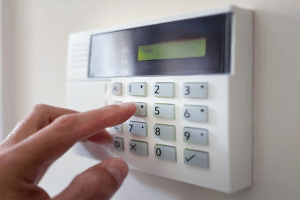
Don’t let criminals into your house! Keep all doors and windows locked, install an alarm system, set up cameras with sensors that detect motion, and get a dog if you can. The more precautions you take now, the less likely it will be for someone to break in later on down the line.
For more information about protecting your home with a security system, call 770-963-0305 or complete this form for a call back.
-

Water damage is the most common insurance claim in the U.S.
Water damage is the most common insurance claim in the U.S. But it’s also one of the most expensive—and it’s getting worse every year.
Water damage claims are increasing because of two main reasons:
- The price of water damage repair has increased
- More people live in homes with more appliances that could cause a leak or flood
Water damage accounts for one out of every five claims to insurers, adding up to $13 billion per year.
If you’re like most people, at some point in your life you’ll experience a leaky pipe or a broken appliance that damages your home. It’s not just costly; it can mean months of inconvenience and stress while you wait for repairs. The good news is that with the right insurance coverage, you can make sure that any water damage claim is handled quickly and professionally.
Below are some facts about the cost of water-related claims:
- Water damage is the most common insurance claim (1/5). According to The National Association of Insurance Commissioners, more than half of homeowners who file claims with their insurer do so because they experienced mold-related issues after experiencing flooding or leaks due to burst pipes or other causes. This adds up to approximately $13 billion in losses annually for insurers!
- The most common insurance claim is water damage, and it affects 15% of homes. Water leaks go undetected for an average of 2,000 hours—that’s more than 75 days! Leaks can cause serious damage to your home and your belongings. According to the Insurance Information Institute (III), a nonprofit organization that provides education about insurance topics to consumers, insurers paid out $19 billion in claims for water damage in 2017 alone.
- If a leak is small enough to be seen, it’s likely too small for you to fix. A quarter-inch pipe leak can waste 10,000 gallons of water a month. What is a quarter-inch pipe leak? It’s the size of one hair strand (about 1/64th inch in diameter). Why does this matter? If the pipe has been leaking for any time at all and not detected, it will have already done significant damage to your home’s foundation or structure. The cost of repairing this type of damage can be high because contractors are often required to excavate around the entire perimeter of your house in order to access pipes buried under concrete slabs and driveways.
- Water damage losses that are unrelated to floods cause over $2 billion in damage annually. According to the Insurance Information Institute, water damage is the most common insurance claim and accounts for one out of every five claims filed with insurers.
What causes water leaks?
There are a variety of causes for water leaks such as frozen pipes, high pressure, corrosion or broken seals. These can be very damaging to your home and could lead to costly repairs. As such it is important that you know the signs and symptoms of these leaks so that you can act fast when one appears in your home.
If you suspect that there may be a leak in your home then here are some things you should check first:
- Check for damp patches on floors or walls, particularly in basements and garages where pipes are often located close to the floor level
- Listen for sounds emanating from plumbing fixtures such as running taps or toilets flushing continuously
Average cost
According to the Insurance Information Institute, the cost for water damage repair is around $7,000 per claim. While an average cost of $7,000 may seem high, it will vary depending on the severity of your property’s damage and whether or not a fire was involved. For example, if your roof collapsed due to a heavy snowfall and caused water damage to all floors below it (including furniture), this would be categorized as “catastrophic” and could easily reach up to $100k+.
Insurance companies may offer coverage for some situations but not others. For example if your home has been flooded due to heavy rain then it may be covered under your homeowner’s insurance policy depending upon how much you pay in annual premiums each year
What can I do?
When it comes to water leaks, prevention is always better than a cure. EMC Security offers a device called a Water Bug. This little guy is placed on the floor near an older toilet, water heater, and any where you want to make sure to detect a leak immediately. If the water bug detects moisture, it will notify your security panel and the keypad will send you a signal. You will also be notified on the mobile app if applicable.
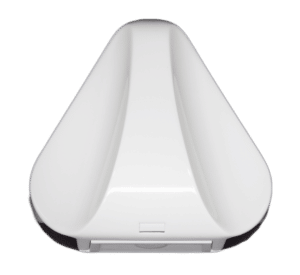
You can also install a Smart Home Water Monitor. After installing the easy-to-use Water Monitor and the mobile app, you’ll be able to monitor your water consumption in real time. That means if the toilet is running, the faucet is dripping, or the water heater is leaking, you’ll know immediately, not when you get that hefty bill at the end of the month.
You will also be notified if there is any sudden increase in water flow, alerting you to any emergencies, and allows you to track your water use over the months and years.
- Get real-time consumption alerts
- No recurring fees or monitoring costs
- Easy installation – no tools or pipe cutting
- Single device monitors the entire home
- Track historical water usage
- Integrates with Amazon Alexa
Water leaks are a serious problem for homeowners, but this doesn’t mean that you shouldn’t take action if you suspect one in your home. If you have any questions about preventing water damage, please contact us today!
-

Six Causes of Alarm System Trouble
If your home or business is protected by an alarm system, you want it to be working properly at all times.
Unfortunately, even the most well-designed systems can malfunction and cause issues. If this happens to you, don’t worry! There are steps you can take to identify what went wrong and fix any problems before they escalate into bigger issues.
In this post we’ll look at some of the most common reasons why an alarm system may fail to operate as intended and how to fix them so that you’re always safe from intruders!
Low Battery in Main Panel
You may see problems if the battery in your main panel are low. As with most electronics, if you leave the batteries in for too long without replacing them, they will stop working and cause issues when you try to use them.
You can check the condition of your system’s battery by checking the status light on your main panel. If this light is out or flashing red and blue, this indicates that there are problems with either power supply or communication between panels. Checking these things can help you determine whether they’re causing an issue with your security system. If so, it’s important to replace any old batteries quickly so that no more serious damage is done to either part of your security system!
EMC Security will receive a low battery signal from your system and will attempt to notify you through email, phone or text. Our service technicians will assist you over the phone or in person to replace the battery.
Power Loss
When you have a power loss, it can be caused by a number of different things. Your system might lose power because of:
- A power outage
- A dead battery in your main panel. If this happens, you’ll need to replace the battery and reset your alarm system.
Communication Trouble
If you have a telephone line connection to your alarm system, then trouble with that phone line can cause problems. There are a number of reasons why this might happen:
- A power surge or lightning strike on the telephone network could result in an alarm sounding when there is no actual break-in or intrusion.
- The phone company might be experiencing an outage, which could cause your alarm to sound even though there is nothing wrong with it.
- If someone cuts the line between your house and their house, or if they intentionally interrupt it by installing some kind of device, then they may be able to disable your alarms as well as any other devices connected via that line (such as phones).
Similar to telephone communication, a Wi-Fi signal can be interrupted during weather, lightning, and tampering.
The most reliable form of communication is via cellular connection. It is very rare for weather to affect cell towers and tampering is most impossible.
All EMC Security systems are tested for signals every 30 days. If your system fails to communicate with the EMC Security monitoring center, the system will most likely start beeping. When this happens, contact us immediately to trouble-shoot.
Low Batteries in Wireless Devices
If your wireless devices are experiencing a low battery, this could cause the alarm system to fail to communicate with the central station and/or fail to communicate with any of the other devices in your home. In addition, if you have wireless keypads installed on doors or windows and their batteries are low, then your system may not be able to detect whether or not those areas are secure.
Many systems send a signal to the keypad to alert customers of low batteries. EMC Security’s low priority monitoring center will also send an email, text and in some cases, call to notify the customer.
The most effective way to ensure your system is working effectively, is to perform regular maintenance checks and test all parts of your system. How to test your system >>
-

Security System vs Security Cameras
Whether you’re thinking about investing in a home security system and are considering an alarm system or a security camera, or you already have one but want to know more about the other option, you need to consider the pros and cons of each type of equipment.
By taking into account these factors, you’ll be able to make an informed decision about which type of security device will work best for your needs.
Security cameras have a variety of benefits
Security cameras are an increasingly popular way to monitor your home and keep tabs on your family, pets, and valuables. They’re particularly useful if you’re away from home for extended periods of time as it allows for remote viewing of the camera’s feed. You can also set up motion detection features that will allow the camera to send alerts when it detects movement in its line of sight. This can be especially useful if you want to know if there is someone lurking around outside your house at night without having to be physically present there.
You can also use security cameras to monitor inside your home while you’re away by setting them up with a live feed over WiFi or Internet connection so that other people have access as well (for example: friends and family members who want updates). This may sound like an invasion of privacy but remember that many homeowners already have webcams installed throughout their house anyway! The difference here is those webcams don’t provide any kind of security or safety benefits—they’re just there because they look cool 🙂
on the other hand…
Security alarm systems can be more secure than cameras.
If you’re looking for a more sophisticated security solution, a security alarm system might be the best bet. Security alarms have more sensors than cameras and are thus more difficult to bypass without being detected. Additionally, most home security companies employ professionals who can monitor your home’s alarm system and respond quickly if an intruder triggers it. This means that even if you’re not at home when someone breaks in, it’s unlikely that he or she will have time to do much damage before being caught by the police or private security guards from your HOA or neighborhood watch group.

If money isn’t an issue for you and you prefer a hands-off approach to monitoring your property—for example, if most of the time no one is at home when burglars break in—homeowners may want to consider installing both cameras and motion lights around their homes instead of just one or the other. If there’s no movement detected after 15 minutes (or however long is appropriate based on how often people move around inside), then simply turning off all exterior lighting could deter future attacks as well as alerting anyone passing by that something’s wrong.”
however…
Security cameras can serve different purposes.
When it comes to security cameras, you have a lot of options. Security cameras can be used for many different purposes and in many different locations in your home or business. Some people use security cameras to monitor their homes while they’re away on vacation or out of the office. Other people use them to keep an eye on their kids while they’re at school, or even to watch over their pets while they’re at work or in other parts of the house.
Security systems are also useful for monitoring businesses during business hours, especially if you have employees working there who need constant supervision and attention paid to what’s happening inside your building (and outside).
but…
Alarm systems can be more discreet than security cameras.
If a home security system is an investment, then the cameras are just one piece of it. If you’re setting up your own network of cameras and sensors, you can tuck them away in a corner out of sight. Alarm systems have to be visible in order to function properly.
Alarm systems also cost more than their camera counterparts: they require professional installation and sometimes even monthly fees depending on whether or not they’re wireless or hardwired. Security cameras tend to be cheaper because they can be self-installed with little difficulty; however, even if you hire someone else for the job, alarm systems typically cost more than any other type of home automation device.
There’s something about having an alarm system—even if it’s just for aesthetic purposes—that makes people feel safer in their homes (and there’s plenty of research that supports this).
DIY security systems with wireless components will save you money in installation costs. Wireless security systems are easier to install than wired systems. The first thing that you need to understand is that wireless components can be installed in hard-to-reach places, like over your garage or on the roof of your home. This type of installation doesn’t require a professional technician and will save you money because it does not require additional labor costs or materials like drilling holes into walls and running wires. Wireless components can also be installed without disturbing the existing wiring in your home; this means that there won’t be any mess left behind after installation is complete!
It’s possible to use your smart home security system’s app to control both your lights and thermostat, giving you even more options for savings.
You can use your smart home security system’s app to control both your lights and thermostat, giving you even more options for savings. It’s possible to set the thermostat so it will turn on at a certain time every day, ensuring that things are warm or cool when you get home. You can also program it to keep the house comfortable for when guests come over and want to stay for dinner. And if you have pets, this means they won’t accidentally be left in hot or cold spots of the house!
People need to consider the pros and cons of alarm systems vs security cameras and make an informed decision about their home security needs. When it comes to home security, there are a lot of options. You can have a security system or you can use security cameras.
If you’re not sure which one is right for your needs, keep reading!
An alarm system will alert authorities when someone breaks into your house or business in an attempt to steal from it.
Security cameras provide visual proof that someone was inside your home at a given time—and they might even catch them in action! They are great for catching burglars who break into houses because they don’t want anyone else around while they do their thing. However, they aren’t effective against other kinds of crimes such as vandalism or robbery due to lack of interaction between perpetrator and victim during these acts (like breaking windows).
When deciding what kind of security system is best for your home, you need to take into account the pros and cons of each option.
To discuss your options with an EMC Security specialist, call 770-963-0305 or schedule a call here >>



